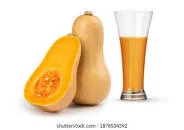White Pumpkin Uses and Benefits-2023
White Pumpkin Uses and Benefits
A member of the gourd family, the white pumpkin (Cucurbita pepo) is a variation of the ordinary pumpkin. Its appearance is white or pale, and its flavour is mildly sweet. In this topic we will discuss all about White Pumpkin Uses and Benefits .
This type of pumpkin is grown in many parts of the world, and because of its favorable growth circumstances, nutritional advantages, and uses, it is an important ingredient in many different culinary and medical traditions.

Growing Conditions for White Pumpkin :
White pumpkins prefer a pH range of 6.0 to 6.8, well-draining soil, and are best produced in warm areas. For optimum growth, they need full sun. Regular watering is crucial, especially throughout the flowering and fruiting seasons, and the soil should be rich in organic matter.
To promote healthy air circulation and stop the spread of illnesses, plants need to be spaced sufficiently apart.
Ayurvedic Perspective of White Pumpkin :
White pumpkins are prized for their cooling qualities in Ayurveda, the conventional Indian medical system. As one of the three basic energy in Ayurvedic philosophy, they are thought to calm the Pitta dosha. White pumpkins are cooling, thus they are good for people who are overheated or inflammatory.
In order to balance Pitta and enhance general well-being, Ayurvedic practitioners frequently advise using white pumpkins in diets.
Nutrient Content of White Pumpkin :
White pumpkins have many of the same vital elements as their orange . A great source of vitamins, minerals, and dietary fibre, they have few calories. Vitamins A, C, potassium, and antioxidants are a few of the essential components included in white pumpkins. On top of that, white pumpkins have very little fat, very little protein, and mostly carbs.
Follow Our Digiknowledge.co.in Page for Latest update about Bikes, Cars, Sports, , Life style and many more.
What are the Health Benefits of White Pumpkin?
- Digestive Health: The fiber content in white pumpkins supports digestive health by promoting regular bowel movements and preventing constipation.
- Rich in Antioxidants: White pumpkins contain antioxidants, such as beta-carotene, which help neutralize free radicals in the body, thereby supporting overall health and reducing the risk of chronic diseases.
- Vitamin A for Eye Health: The high vitamin A content in white pumpkins contributes to eye health, supporting vision and preventing conditions like night blindness.
- Hydration: With a high water content, white pumpkins contribute to hydration, aiding in maintaining optimal bodily functions.
- Low in Calories: White pumpkins are a low-calorie food, making them a suitable option for those aiming to manage their weight while still obtaining essential nutrients.

The advantages of drinking white pumpkin juice on an empty stomach
There may be certain advantages to consuming white pumpkin juice on an empty stomach.
Digestive Health: When ingested on an empty stomach, the dietary fibre in white pumpkin juice can help with digestion and encourage regular bowel movements.
Hydration: Drinking white pumpkin juice first thing in the morning can help stay hydrated by supplying vital fluids that the body needs to function.
Better Absorption of Nutrients: When white pumpkin juice is consumed on an empty stomach, the digestive system is not overworked and can better absorb nutrients.
Skin Benefits of White Pumpkin Juice:
White pumpkin juice has various benefits for the health of the skin:
Vitamin A: High in vitamin A, white pumpkins help to maintain the health of the skin by encouraging cell turnover and warding off dryness.
White pumpkin contains beta-carotene and other antioxidants that work to fend off free radicals, lessen oxidative stress, and promote a healthier skin.
Hydration: The high water content of white pumpkin juice keeps the skin hydrated and gives it a more radiant, plump look.
White Pumpkin During Pregnancy:
Because it contains a variety of vitamins and minerals, white pumpkin can be a nourishing addition to a pregnant woman’s diet.
To prevent any possible contamination, it is essential to eat it in moderation and make sure it is cooked correctly.
White for Weight Loss:
White pumpkin is a beneficial addition to a diet plan for a number of reasons.
Low Calorie: White pumpkin has a low calorie content, which makes it a good choice for anyone trying to cut back on their calorie intake.
High in Fibre: White pumpkin’s high fibre content helps to regulate appetite and avoid overeating by promoting fullness.
Rich in Nutrients: White pumpkin is calorie-free and high in vital nutrients, which helps the body lose weight by providing it with the right kind of vitamins and minerals.
Furthermore, before making big dietary changes, expectant mothers should speak with their healthcare professional.
Uses of White Pumpkin for Youth, Adults, and Women:
For Men: Owing to its high antioxidant content, white pumpkins may help enhance general health and guard against oxidative stress.
For women: White pumpkins are a great source of iron for women, as they help avoid iron-deficiency anaemia, which is a serious health concern. Furthermore, skin health benefits from the vitamin A concentration.
For Kids: Incorporating white pumpkins into children’s diets can furnish vital vitamins and minerals that are important for their growth and well-being. Kids can also find the mild flavour pleasant.
How to Eat White Pumpkin :
Due to their versatility, white pumpkins can be used in a wide range of culinary recipes. Here are some ideas for preparing and eating white pumpkins:
Cooked Dishes: You may cook white pumpkins in soups, stews, and curries. A wide range of spices and herbs go well with the mild flavor.
Baked or Roasted: To make a tasty and wholesome side dish, slice white pumpkin and toss it with salt, pepper, and olive oil.
Smoothies: White pumpkin can be used to smoothies along with other fruits and vegetables to create a nutrient-rich, refreshing drink.
Pastries: Pies, puddings, and cakes can all be made with white pumpkin. The flavor of these goodies is enhanced by their inherent sweetness.
Boiled or Steam-Finished: White pumpkin can be cooked in one of two ways: either as a stand-alone meal or mashed and used as a foundation for other recipes.

What are the Side effects of White Pumpkin Juice?
While most individuals can safely consume large amounts of white pumpkin juice, there are certain adverse effects that can occur. Individual responses may differ, so it’s vital to remember that.
If you have any concerns, you should speak with a healthcare provider. Among the possible adverse consequences are:
Abdominal Problems: Excessive use of white pumpkin juice, particularly in big amounts, may result in bloating, gas, or diarrhoea.
Allergy Reactions: People who have allergies to pumpkins or related vegetables may develop breathing difficulties, swelling, itching, or other allergic reactions. Take care and consult a doctor if you are aware of any allergies.
Blood Sugar Levels: White pumpkin naturally contains sugars, which can be impacted by consuming too much of them. Before consuming a lot of pumpkin juice, diabetics should check their blood sugar levels and speak with a healthcare professional.
White Pumpkin Recipes:
There are many different ways to prepare white pumpkins in cooking, such as:
Curry and Stews: White pumpkin absorbs the flavors of the spices it is added to, bringing out the overall flavor of savoury curries and stews.
Roasted or Baked: To make a tasty and nourishing side dish, bake or roast white pumpkin cubes or slices with olive oil and herbs.
Desserts: Because white pumpkin has a little sweetness, it’s frequently used in desserts like pies, puddings, cakes.
White Pumpkin Petha: “Petha” is a classic Indian dessert prepared from white pumpkin or ash gourd. It is popular throughout many locations and is frequently candied or preserved. Petha is renowned for having a chewy, sweet texture.
Smoothies: Add white pumpkin to fruit and vegetable smoothies to create a hydrating, nutrient-rich drink.
Like any food, moderation is crucial, and individual responses may vary. Including white pumpkin in your diet can offer a variety of flavors and nutritional advantages.
See a healthcare provider or nutritionist for individualized guidance if you have any particular health issues or ailments.




